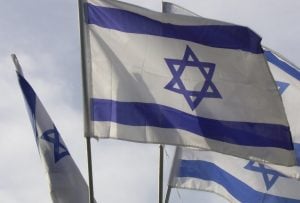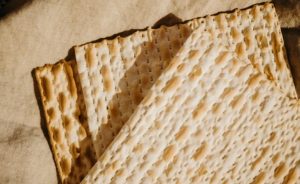One of the incredible aspects of Israel is that history sits on every street corner, like literally on the street sign. Throughout the country, many roads are named after various leaders from throughout Jewish and Israeli history, and many leaders’ names are used as street names in multiple cities. In some places, you might even find a small introduction of who the person was on the sign itself, giving you something to do while waiting for the light to change. Here is a list of just a few great leaders that you will find in many cities across Israel.
Arlozorov
Chaim Arlozorov was was born in the Ukraine in 1899, and experienced anti-Semitism during his childhood. He soon found himself in Germany, where his journey towards Israel began. He started to learn Hebrew and while studying at the University of Berlin, Arlozorov wrote Zionistic articles and became a leader in the local ‘Hapoel Hatzair’ Zionist socialist party. In 1923 he was a part of the Zionist Action Committee in the World Zionist Congress, and just a year later, made it to Israel. Arlozorov continued to participate in Israeli politics, as he represented the Yishuv at a League of Nations meeting in Geneva and was later the political director of the Jewish Agency. In 1933, Arlozorov was assassinated while walking on the beach in Tel Aviv.
Balfour
Most street names in Israel are named after Jewish leaders, but British statesman Arthur James Balfour has also made this prestigious list. Balfour is most well known for his Balfour Declaration which he wrote in 1917 to Lord Rothschild, the leader of the British Jewish community, stating that there should be a national home for the Jewish people in Israel and that the government would help establish this national home when the time came. Balfour wrote the letter while serving as Foreign Secretary, a position he took up after serving as prime minister. He was one of the first outward non-Jewish supports of the modern State of Israel.
Begin
Menachem Begin was Israel’s 6th prime minister, but his story did not start in Israel. Having been born in Belarus, Begin was exposed to the troubles of being Jewish from an early age which then inspired him to join many different Zionist groups and movements throughout his life in Europe. He was seen to be a disciple of the Zionist leader Ze’ev Jabotinsky, and in 1942 Begin moved to British Mandated Israel. Begin was a leader of the Irgun militant group that fought against the British Mandate leading up to Israel’s independence. Once Israel was established, he helped establish the Herut political party, which is today known as Likud.
Fun Fact: Begin received a Nobel Peace Prize for the 1979 Peace Treaty with Egypt.

Ben Gurion
David Ben Gurion is one of Israel’s most well-known leaders who helped establish the State of Israel. Originally from Poland, Ben Gurion moved to Israel in 1906 and took many leadership positions with the Jewish Agency and World Zionist Organization. On May 14, 1948, Ben Gurion announced to the world the establishment of the Israel from Tel Aviv and assumed position as the first prime minister. He was prime minister for two terms and then continued with politics until 1970 when he retired and moved to Kibbutz Sde Boker in southern Israel. Ben Gurion believed in the power of the Negev Desert and believed it could really bloom into something beautiful.
Ben Yehuda
Israel’s national language, and the language of the Jews is Hebrew, but the language was nearly dead just about one hundred years ago. Eliezer Ben Yehuda is the man we thank for reviving and modernizing this ancient language. Hebrew was seen to be a holy language only used for learning Jewish subjects and praying, but Ben Yehuda believed Hebrew could unite the Jewish people from around the world. Once he moved to Israel, his family spoke strictly Hebrew at home, and Ben Yehuda and his wife refused to expose their son to other languages, leading him to a lonely childhood as the children in their Jerusalem neighborhood spoke Yiddish. Ben Yehuda edited many Hebrew newspapers, created the first modern Hebrew dictionary and established the Academy of the Hebrew Language, which is now part of Hebrew University.
Bialik
Hayim Bialik is considered to be not only a pioneer of modern Hebrew poetry, but is also Israel’s national poet. His love for writing and literature lead him to open the Hebrew language publishing company, Dvir, while living in Odessa. Dvir later moved with Bialik to Tel Aviv in 1924, and although the name has changed, the publishing company is still printing books today. Having been seen as an influential person, Bialik delivered the opening address for Hebrew University in Jerusalem and was a member of the board of governors. From 1927 until the end of his life, Bialik was the head of the Hebrew Writers Union and continued to write poetry. Bialik passed away while in Vienna, Austria but was buried in his Israeli hometown of Tel Aviv. Today, Bialik’s home is a museum and a center for literary events.
Hannah Senesh
Noticing a trend in Israeli street names, many are named after men who served in Israeli politics or helped established different aspects of the country, but here is one that fits neither category. The young Hannah Senesh is Israel’s national heroine, who was tragically executed at the age of 23. Born and raised in Hungary, Hannah Senesh, realized in her young age that Europe was no place for the Jews, leading her to embrace the idea of Zionism. At 18 years old, Senesh moved to Israel to study agriculture and later moved to Kibbutz Sdot Yam. In World War Two, Senesh volunteered to join the British army to be one of 37 Jewish parachutists to help rescue Hungarian Jews from entering Auschwitz. Unfortunately she was arrested by Hungarian soldiers soon after landing, and was tortured to reveal details of her mission. She refused and was executed as punishment. Her remains were moved to Mount Herzl in 1950.
Fun Fact: Hannah Senesh was also a poet. Her most well-known poem is ‘Eli,Eli’.
Herzl
Theodore Herzl, or in Hebrew, Binyamin Ze’ev Herzl, is best known as the father of modern Zionism. He was born and raised in Hungary, and from an early age, took a liking towards writing and journalism. During the Dreyfus Affair, Herzl was a correspondent for a French newspaper, and some say that having covered this event so closely was what turned Herzl onto Zionism. Some say that it was the spike in anti-Semitism that followed the case, but regardless, as a young man, Herzl knew the Jewish State of Israel had to be turned into a reality. He went on to establish the World Zionist Organization, but never saw his dream come true as he passed away in the early 1900s at the age of 44 in Austria. After Israel became an independent state, his remains were moved to the top of Mount Herzl, which was named after him, and is known to be the cemetery for great leaders and fallen soldiers.
Fun Fact: Herzliya does not have a Herzl street since the city itself is named after Theodore Herzl
Jabotinsky
In 1880 Vladimir Jabotinsky was born in Odessa, but he would later be known as the great Ze’ev Jabotinsky, a name he took on once he learnt Hebrew. Jabotinsky was one of the most influential Jewish revisionist Zionist leaders as well as being an author, poet, and a soldier in the British army. Knowing that pogroms were an issue while living in Europe, Jabotinsky founded the Jewish Self-Defense Organization to teach Jews how to protect themselves during these difficult times. This was one of the few organizations Jabotinsky started in and out of Israel for the Jewish people. In 1903, he was the Russian delegate to the 6th Zionist Congress and after Herzl’s death, Jabotinsky became the leader of right-wing Zionists. From 1908-1914, he was the World Zionist Organization representative in Turkey. During World War One, Jabotinsky helped establish a Jewish units to fight for the British army, where he then began his career in the British army. Upon his release, he made Israel his permanent home and continued to help in the creation of Israel and keeping Jews safe around the world.

Rav Kook
Rav Avraham Yitzchak Kook was the first Ashkenazi Chief Rabbi of the British Mandatory Israel in 1921. He was born in Russia in 1865 and was considered to be a child prodigy while studying in yeshiva, which lead him to be the head rabbi of many different communities throughout Europe. In 1904 Rav Kook moved to Israel and became the rabbi of the city of Jaffa, where he was also in charge of religious life of the nearby secular settlements. After his move, Rav Kook took a trip to Europe, and World War One broke out, causing him to stay in Switzerland and London for the remainder of the war. He became the chief rabbi of one of the Jewish communities in London. Upon returning to Israel in 1919, Rav Kook was made the Chief Ashkenazi Rabbi of Jerusalem as he was considered to be one of the greatest Jewish thinkers of the time. Rav Kook believed in outreach and cooperation between all Jews, no matter their backgrounds.
Fun Fact: Rav Kook was a vegetarian throughout the week but not on Shabbat or during Jewish holidays
Tchernichovsky
One of Israel’s great Hebrew poets is Shaul Tchernichovsky from Russia, but his job was not one of literature. Tchernichovsky studied medicine and learnt Hebrew while in Russia, and was later an army doctor during World War One. He had a passion for literature, which fueled his poetry, editing of Hebrew newspapers and the medical section of the Hebrew encyclopedia “Eshkol”, and even translated some of the greatest works of literature, such as Homer and Shakespeare. In 1931, Tchernichovsky moved to Israel and continue to work in medicine as a doctor for the famous Herzliya Hebrew High School in Tel Aviv and other schools in Tel Aviv. In 1940 and 1942, he was awarded the Bialik Prize for literature. Many of Tchernichovsky’s poems have been put to music by famous singers and songwriters.
Fun Fact: Tchernichovsky is featured on the 50 shekel bill
Weizmann
Chaim Weizmann was not only Israel’s first president, but was also an incredibly successful biochemist who discovered a way for bacterium to produce acetone, which was used in British explosive devices during World War One. Weizmann was born in Europe and went to school in Pinsk, where he first became involved with the idea of Zionism and his love for chemistry. Having decided to pursue a scientific career, Weizmann moved to Germany to get a degree in chemistry, which he paid for with money he made as a Hebrew teacher at a local German Jewish school. Weizmann later moved to Britain where he worked on large scale projects and eventually moved to Israel, where he opened the Weizmann Institute for Science in Rechovot where he lived. Before moving to Israel, he was in a leadership position for the Jewish Agency and World Zionist Organization.
Fun Fact: Weizmann was one of 15 siblings, to which 11 survived to adulthood and 10 moved to Israel
Most streets in Israel are actually named after people, and the few that are not, are most likely named after plants and cities found throughout Israel. While there are even more streets in Israel named after influential leaders, these are just a few of the modern day ones. There are streets named after prophets, artists, great Jewish thinkers from a thousand years ago, and even some Gentile supporters of Zionism. Next time you walk around Israel, take note of the street names. You can learn something new.






